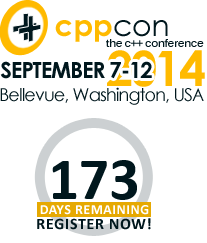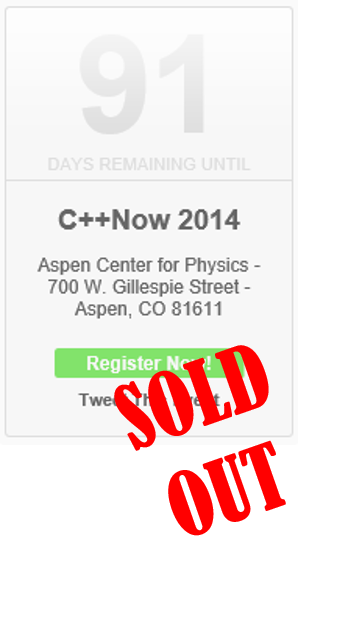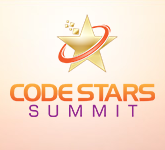Upcoming Public Presentations by Scott Meyers

Upcoming Public Presentations
by Scott Meyers
2014 is shaping up to be a year with more public presentations than usual. As always, you can find links to all my scheduled talks at my Upcoming Talks page, but here are the ones scheduled so far: ... there will be more to come.
Highlights from the article:
May 22, Menlo Park, CA, USA: "The Last Thing D Needs"
June 4, Oslo, Norway: "Effective Modern C++," "Type Deduction and Why You Care," "The Most Important Design Guideline," and "CPU Caches and Why You Care"
September 17, Pennsylvania, USA: "CPU Caches and Why You Care"
October 7-8, London, UK: Two-day "Effective C++11/14 Programming" seminar



 Update: The EE Live! organizers have announced that they are able to expand the room for Stroustrup & Sutter on C++, and so seats are still available for Bjarne Stroustrup's and Herb Sutter's
Update: The EE Live! organizers have announced that they are able to expand the room for Stroustrup & Sutter on C++, and so seats are still available for Bjarne Stroustrup's and Herb Sutter's  As interest in C++ keeps rising, there are more C++ events but they are also selling out faster. C++ Now 2013, Going Native 2013, and C++ and Beyond 2013 all sold out, some six months before the event.
As interest in C++ keeps rising, there are more C++ events but they are also selling out faster. C++ Now 2013, Going Native 2013, and C++ and Beyond 2013 all sold out, some six months before the event. This year, we are again inviting students with an interest in C++ to attend the May 12-17, 2014 conference in Aspen, CO as Student/Volunteers. The program is an excellent way for students with any interest in C++ to learn about C++ and make lasting connections with the C++ community.
This year, we are again inviting students with an interest in C++ to attend the May 12-17, 2014 conference in Aspen, CO as Student/Volunteers. The program is an excellent way for students with any interest in C++ to learn about C++ and make lasting connections with the C++ community. Michael Caisse and Jon Kalb will be conducting a two-day training class on C++11 in San Francisco in March as part of the
Michael Caisse and Jon Kalb will be conducting a two-day training class on C++11 in San Francisco in March as part of the